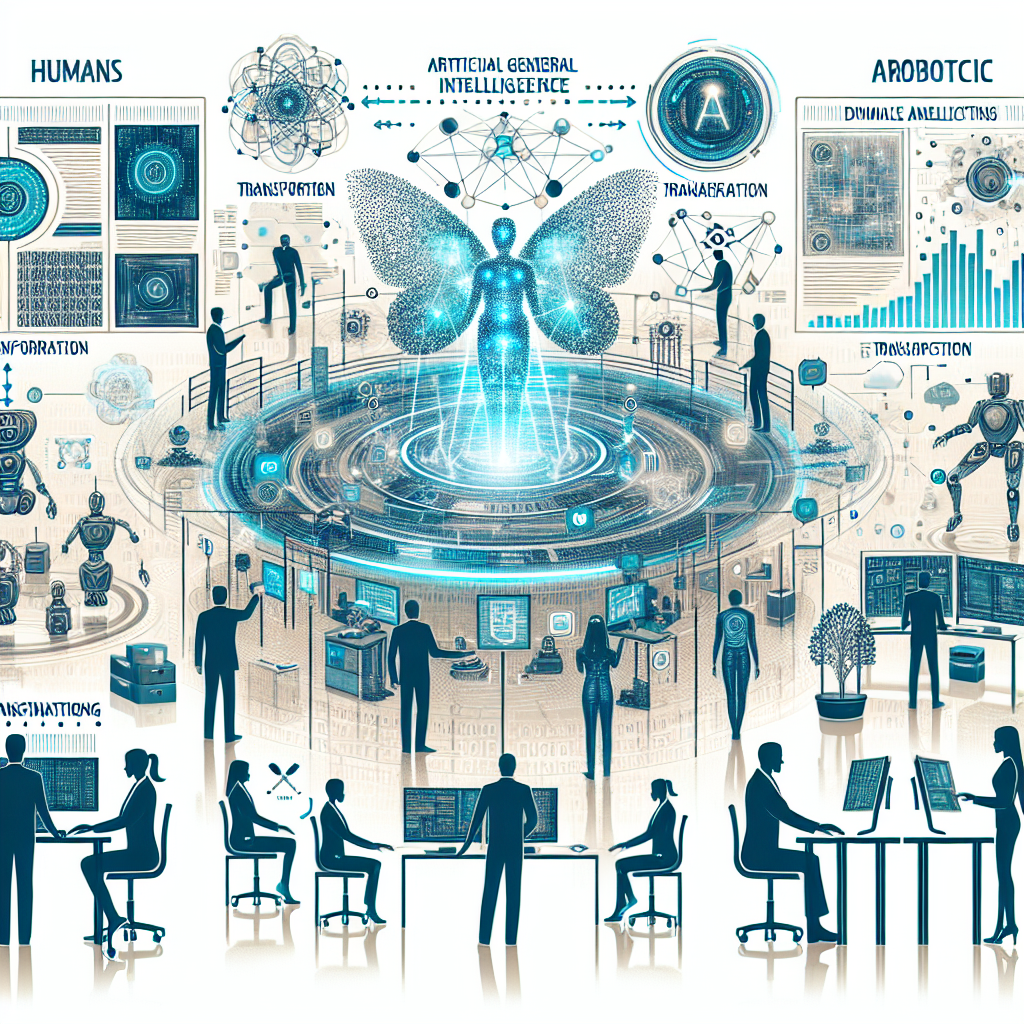Artificial General Intelligence (AGI) has the potential to completely transform the role of humans in the workplace. With the capability to perform any intellectual task that a human can, AGI has the ability to automate a wide range of jobs and tasks that were previously thought to be exclusive to humans. This shift in the workforce will have significant implications for the future of work, requiring humans to adapt to new roles and responsibilities in order to remain relevant in the age of AGI.
AGI is a form of artificial intelligence that is capable of understanding and learning any intellectual task that a human can. Unlike narrow AI, which is designed for specific tasks, AGI has the ability to generalize across different domains and adapt to new situations. This level of intelligence has the potential to revolutionize industries and change the way we work.
One of the key ways in which AGI is transforming the role of humans in the workplace is through automation. As AGI becomes more advanced, it will be able to take on a wider range of tasks that were previously thought to be exclusive to humans. This includes tasks that require creativity, problem-solving, and critical thinking, such as writing reports, analyzing data, and developing new products.
As a result, many jobs that are currently performed by humans could be automated by AGI in the future. This will have a significant impact on the workforce, requiring workers to adapt to new roles and responsibilities in order to remain competitive in the age of AGI. However, it is important to note that not all jobs will be automated by AGI. There will still be a need for humans to perform tasks that require emotional intelligence, empathy, and social skills, as these are areas where AGI still falls short.
In addition to automation, AGI is also transforming the role of humans in the workplace by enabling new forms of collaboration between humans and machines. With AGI, humans can work alongside intelligent machines to solve complex problems, make better decisions, and innovate in ways that were previously not possible. This collaborative approach to work has the potential to increase productivity, efficiency, and creativity in the workplace.
Furthermore, AGI is also creating new opportunities for humans to focus on tasks that require uniquely human skills, such as empathy, creativity, and strategic thinking. By freeing humans from mundane and repetitive tasks, AGI can enable workers to focus on higher-level tasks that require human judgment and intuition. This shift in focus can lead to greater job satisfaction, fulfillment, and growth for workers in the age of AGI.
Despite the potential benefits of AGI in the workplace, there are also challenges and concerns that need to be addressed. One of the main concerns is the potential impact of AGI on the job market. As more tasks become automated by AGI, there is a risk that many jobs could be displaced, leading to unemployment and economic instability. This could exacerbate existing inequalities in the workforce and create new challenges for workers who are displaced by AGI.
Another concern is the ethical implications of AGI in the workplace. As AGI becomes more advanced, there is a risk that it could be used to manipulate, control, or exploit workers for the benefit of employers. This raises questions about the fairness, transparency, and accountability of AGI in the workplace, and the need for regulations and guidelines to ensure that AGI is used responsibly and ethically.
Despite these challenges, AGI has the potential to transform the role of humans in the workplace in profound ways. By automating tasks, enabling new forms of collaboration, and freeing humans to focus on uniquely human skills, AGI can revolutionize industries, improve productivity, and create new opportunities for workers in the age of automation.
FAQs:
Q: Will AGI replace all human jobs in the future?
A: While AGI has the potential to automate a wide range of tasks, not all jobs will be replaced by AGI. There will still be a need for humans to perform tasks that require emotional intelligence, empathy, and social skills, as these are areas where AGI still falls short.
Q: How can workers prepare for the impact of AGI on the workplace?
A: Workers can prepare for the impact of AGI by developing skills that are uniquely human, such as empathy, creativity, and strategic thinking. By focusing on these skills, workers can remain relevant and competitive in the age of automation.
Q: What are the ethical implications of AGI in the workplace?
A: The ethical implications of AGI in the workplace include concerns about fairness, transparency, and accountability. It is important for employers to use AGI responsibly and ethically, and for regulations and guidelines to be put in place to ensure that AGI is used in a responsible manner.

